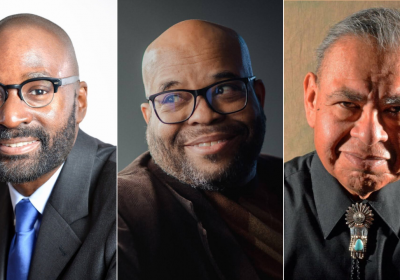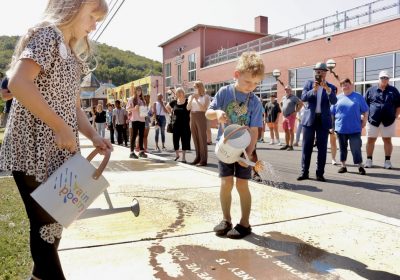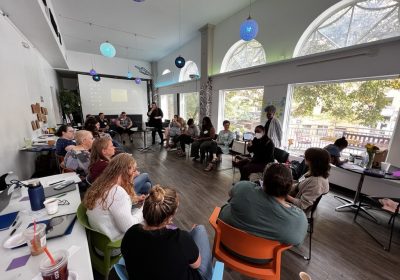PA Humanities board member Daniel Egusquiza shares how his organization’s work helps to create more inclusive spaces and make positive change in the community.
By Karen Price
Barrio Alegría in Reading began with a group of people who enjoyed dance and storytelling.
They weren’t great dancers, founder Daniel Egusquiza is quick to say. In fact, some of his questions for potential members were, “Do you know how to dance?” and “Do you have two left feet?” If the answers were “no” and “yes,” those were the people he enthusiastically invited to join. They would gather, choreograph dances that told stories about their culture and communities, rehearse, and then present performances. But after The New York Times declared Reading the poorest city in the United States based on Census Bureau data, with a poverty rate of 41.3 percent in 2011, the members of Barrio Alegría asked themselves what they could do as artists to impact the lives of their neighbors and help change things for the better.
“And community engagement was the thing that we knew we could do, because we didn’t care about finding the most skilled dancers or the most skilled artists in anything,” Egusquiza said. “We just cared about bringing people together and working on a project long enough to build community, and then showing that project. But the real result was not the project. It was that now these people care about each other.”
Egusquiza is a member of PA Humanities’ board of directors, and Barrio Alegría is now known as a community transformation organization that uses the arts as a platform for engagement and the development of social and multicultural awareness. The majority of their projects are free, have to do with art, and happen outside. Those projects can include hosting art exhibits and arts markets on the streets of Reading to sponsoring a poet laureate program to giving out microloans to creating spaces for community members to come together and celebrate and practice their culture.
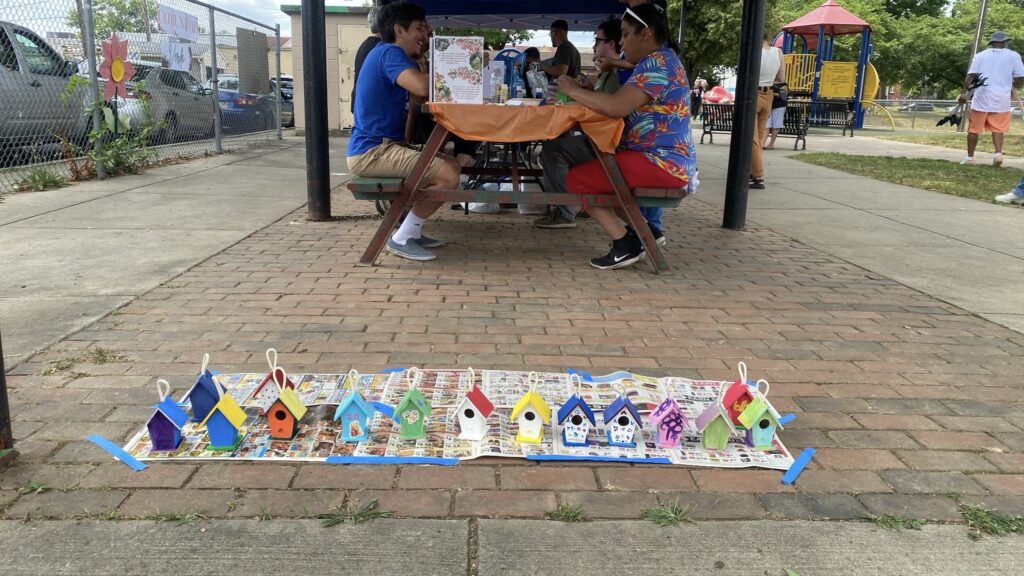
Although Barrio Alegría – Barrio meaning neighborhood and Alegría happiness in Spanish – doesn’t usually refer to itself as a storytelling organization, Egusquiza said, that’s a large part of what they do and how they measure their impact. One of their earliest goals was to change the mentality of the people not only in Reading but specifically in their South of Penn neighborhood, where the pervasive narrative was that nothing ever worked in Reading so it wasn’t worth bothering to try to make positive change.
Stories, he said, are one of the best ways to demonstrate how peoples’ lives and communities actually are improving. Their website hosts a “Living Library” of stories of personal transformation, leadership development, business/entrepreneur development, and community building as told by the people who interact with the organization. They also sit down and talk with their neighbors to learn more about their impact.
“We say, ‘Hey, so what happened this week? How is this a better place?’” Egusquiza said. “And they are usually very happy to share with us some of the stories that have happened.”
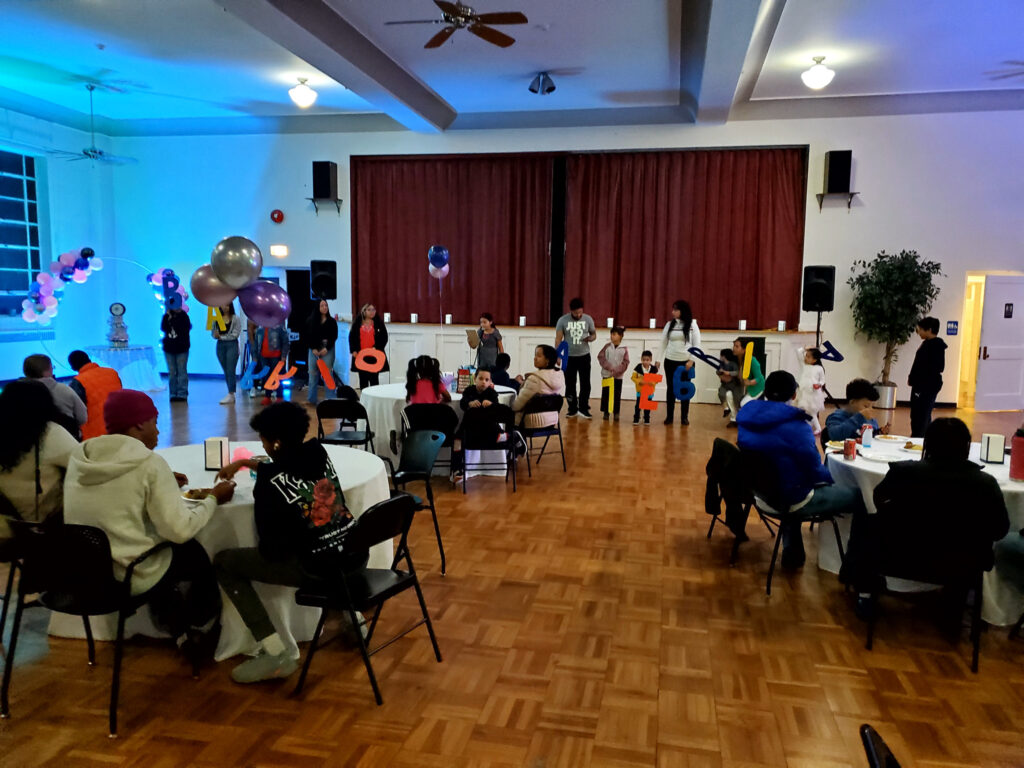
The work isn’t always easy.
Egusquiza recalls one example during the pandemic when community members became concerned about an increased presence of drug dealers outside and in public spaces. After Barrio Alegría once again began holding programs outdoors, not everyone was welcoming of the groups of people and outsiders and the potential of bringing a police presence into neighborhoods. One woman who was involved with the organization was even threatened with violence.
“So now we had this new problem in our laps, which was, how do we deal with drug dealers?” Egusquiza said. “That’s not in the job description. But I told my staff before the next event we’re going to go one hour early, we’re going to do a cleanup, and we’re going to have a children’s activity. And I’m going to go knock on doors.”
Egusquiza knocked on the door of the person who’d made the threats, introduced himself, and explained what Barrio Alegría was and what they were doing in the neighborhood.
“And he said, ‘Oh, you guys are the ones doing the children’s activities. Well, I didn’t know. No one told me,’” Egusquiza said. “He was like, ‘Oh, man, I’m gonna show up there. And I’m gonna clean up everything with you guys, and I’m gonna tell everybody here that they can’t mess with you guys. You know I really like what you guys are doing.’ And so that interaction changed everything. So that was a humanities moment for me, going out of our way and putting aside our fears, talking and sharing and inviting. That was transformational. But we also knew that we needed to do it, because otherwise we were going to lose that neighborhood.”
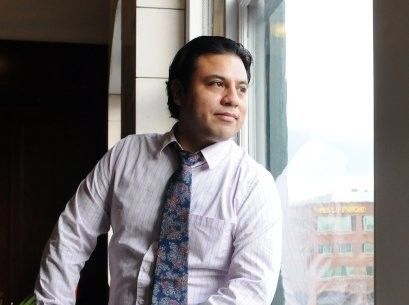
Founder of Barrio Alegría is just one of Egusquiza’s many hats. As a PA Humanities board member, he organized a Spanish-language focus group as part of the Discovery Project, and is currently helping to plan a bilingual version of the popular statewide Rain Poetry project in Reading for 2025.
He is also the community engagement supervisor at Reading Public Library. According to the Census, Pennsylvania’s Hispanic/Latino population has more than doubled since 2000, and Berks County, where Reading is located, is second only to Philadelphia in its Hispanic/Latino population. But several years ago, Egusquiza and the staff had noted that the immigrant population in particular was very reluctant to use the library.
Egusquiza held a series of focus groups and learned that, first of all, the Carnegie-era architecture and size of the building made it feel intimidating and unwelcoming. He also learned that if he was there, people felt more comfortable coming inside and spending time.
One solution was to change the security guards’ uniform to clothing that matched what other library employees wore. Another solution was to bring programming to the space outside of the library, including performances by Barrio Alegría.
“Once people performed there, and saw their friends performing there, and their sisters, brothers, children, spouses, then they were like, ‘OK, this is a known space, this is a space that I can recognize as mine, because they feel safe and that makes me feel safe as well,’” he said.
Egusquiza said when he founded Barrio Alegría in 2009, he thought it might be around for a couple of years. They just celebrated their ninth year of being incorporated and the organization continues to grow with projects including theater, photography and other creative programs designed to engage community members and reclaim neglected spaces.
“What I am most proud of, is that the group that started Barrio, the group that is involved in Barrio, is not your typical nonprofit heads,” he said. “We’re just a group of people that want to see change. And we are pretty creative. And we are very audacious.”
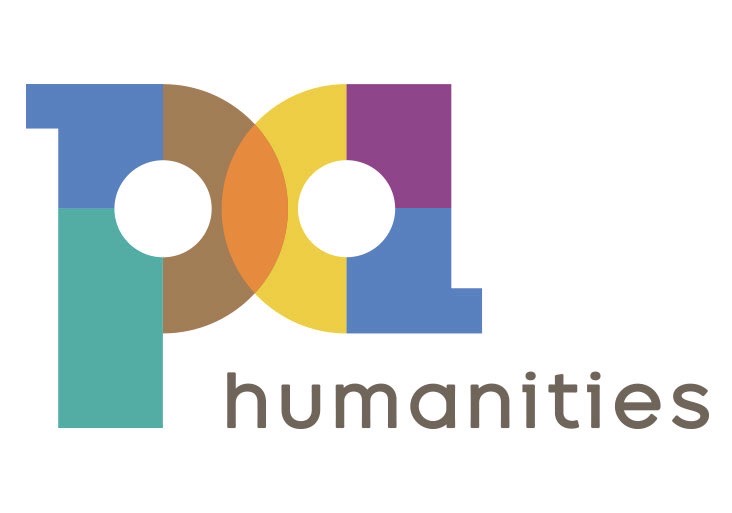
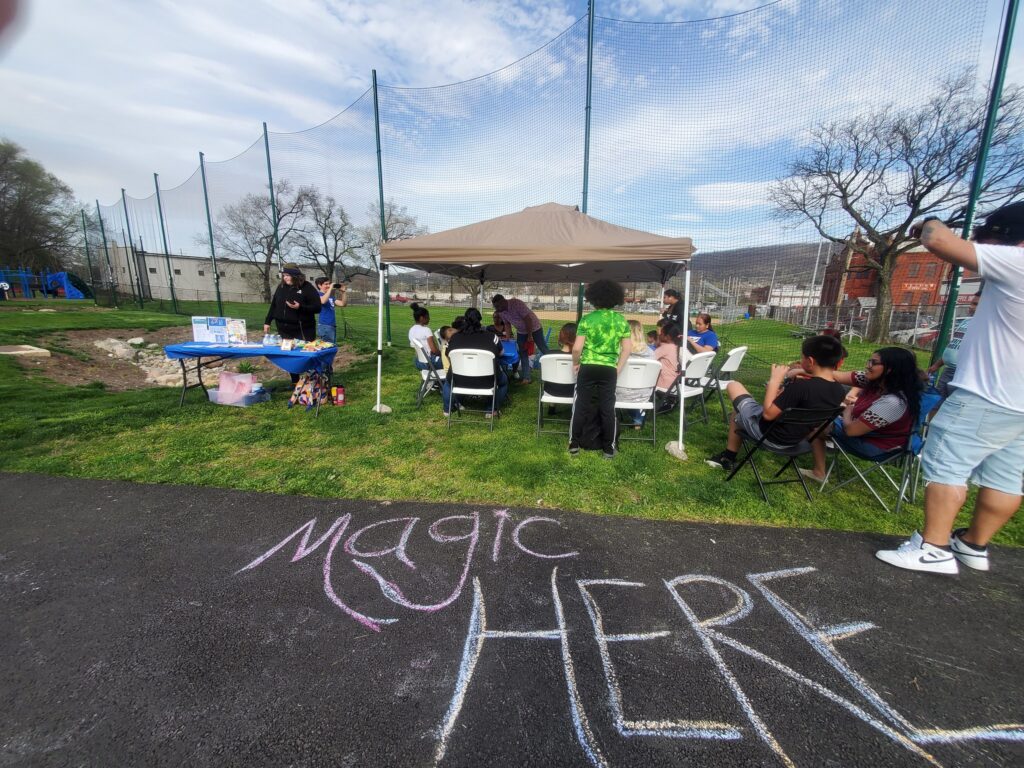
![[color – dark bg] PA SHARP FINAL FILES DB 72dpi [color - dark bg] PA SHARP FINAL FILES DB 72dpi](https://pahumanities.org/uploads/files/elementor/thumbs/color-dark-bg-PA-SHARP-FINAL-FILES-DB-72dpi-phgl7aimtfdpzt2rscvl43ksfv3asbbls19lsvuacw.jpg)
